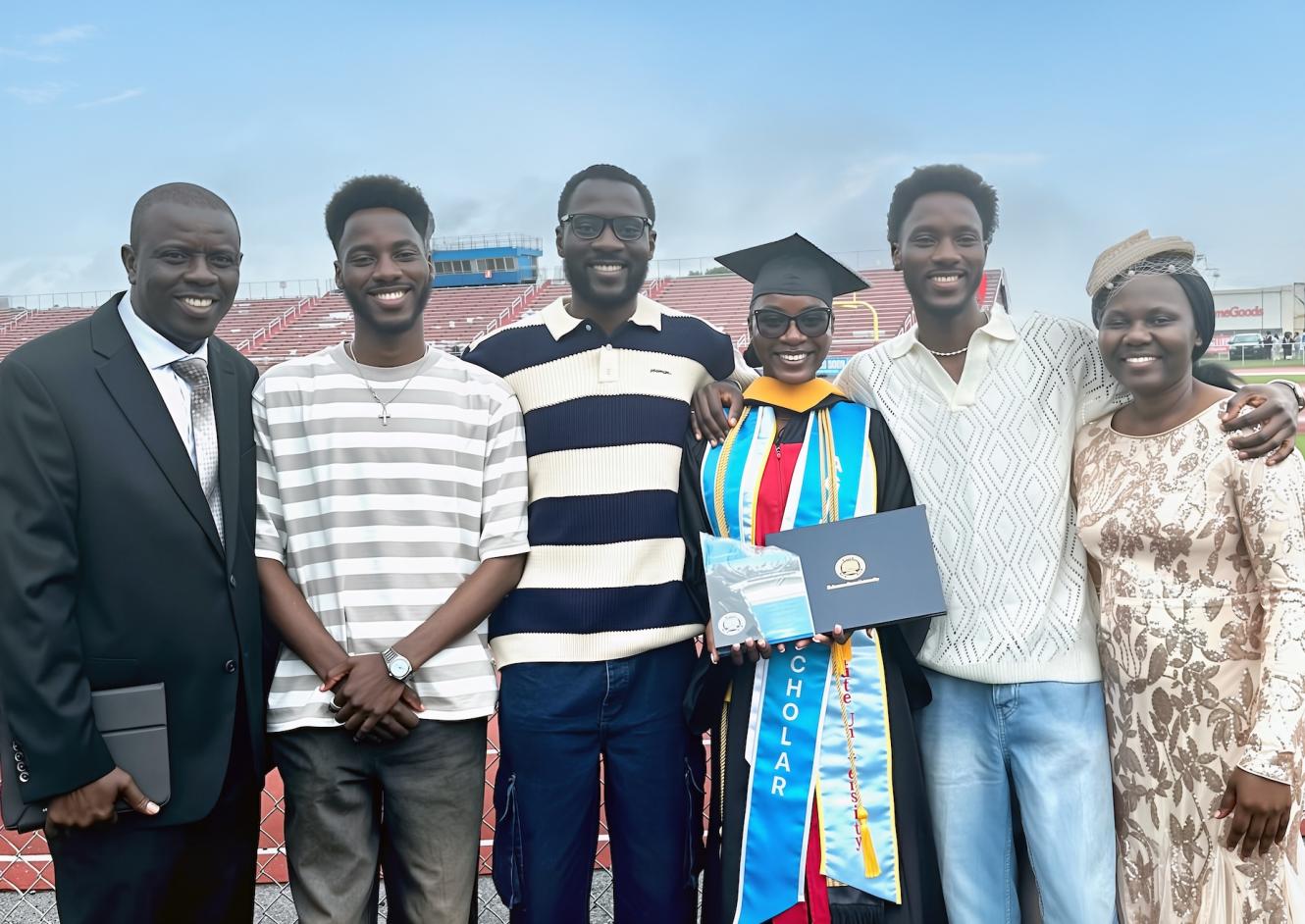
The journey of Rev. Dr. Oluwafemi Adeyemi '25 (DMin), is one marked by deep spiritual conviction, rigorous academic pursuit, and a pragmatic approach to ministry. His path began with a conversion experience in 1989, leading him to the Nigerian Baptist Theological Seminary (NBTS) in 1996, and subsequently into pastoral ministry in 1997. This foundational period culminated in a PhD in Biblical Studies from NBTS in 2007, followed by a second PhD in 2013 from the University of Jos (Nigeria), illustrating a profound commitment to scholarly excellence and a desire to "rightly divide a word of truth,” a topic Dr. Adeyemi is very passionately pursued.
The Essence of Pragmatic Discipleship
At the core of Dr. Adeyemi’s theological framework is the concept of "pragmatic discipleship," a term he coined to articulate a discipleship model that transcends mere classroom instruction or certificate-based programs. He posits that biblical discipleship, as exemplified by 2 Timothy 2:2 and the relationships of figures like Timothy with his grandmother and mother, or Paul and Barnabas, must be profoundly practical and impact daily life rather than existing as a theoretical exercise. The divine mandate given to the church, in his view, is unequivocally to "make disciples." Dr. Adeyemi's forthcoming DMin research, an inductive study examining elders and youth in the Nigerian Baptist Youth context, will further explore this empirical research in pragmatic discipleship, seeking to understand the problem and chart a way forward (An Assessment of the Replication of Jesus’ Social Ministry in the Nigerian Baptist Convention, 2013). This focus on practicality suggests a concern for tangible outcomes and the real-world application of faith, rather than a solely academic or theoretical engagement.
The contemporary ministry landscape presents unique challenges, particularly concerning intergenerational engagement and the pervasive influence of the post-modern world. Dr. Adeyemi observes a significant divergence in worldview between generations, highlighting how the post-modern era has shifted perspectives, leading to a perceived lack of respect among youth. He notes that many young people today are more inclined to listen to motivational speakers than to engage in in-depth scriptural study. This dilemma leaves ministry leaders grappling with how to foster deep spiritual growth when congregants, particularly the younger demographic, seek different forms of engagement. These observations underscore his commitment to understanding and adapting ministry approaches to effectively reach diverse audiences, without compromising the depth of biblical truth. His personal pursuit of knowledge is evident in his 2007 archaeological trip to Israel, where he visited the Qumran caves and engaged with Masoretic texts, indicating a meticulous approach to biblical scholarship. Dr. Adeyemi stresses that "language is key" and that an understanding of historical context, such as the cultural implications of a "backhand" slap being insulting, in reference to the words of Jesus, is crucial for comprehending biblical narratives. This rigorous academic grounding, paired with his pragmatic ministry philosophy, shapes his holistic approach to Christian leadership and discipleship.
After serving as the senior pastor of Idi Ape Baptist Church, Ejigbo, Osun State in Nigeria, presently, Dr. Adeyemi is engaged in church planting in Dover, Delaware, a venture that aligns with his belief in the burgeoning relevance of house churches. He eloquently states, "You can have an auditorium without having a church; you can have a church without an auditorium," emphasizing that the essence of a church lies beyond physical structures. This perspective suggests an adaptable and community-focused approach to ministry, reflecting a dynamic understanding of church growth and engagement.









